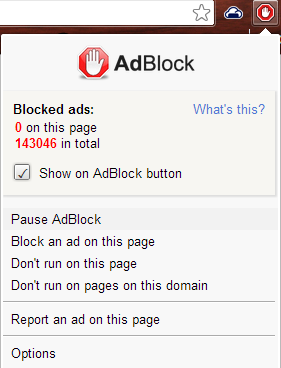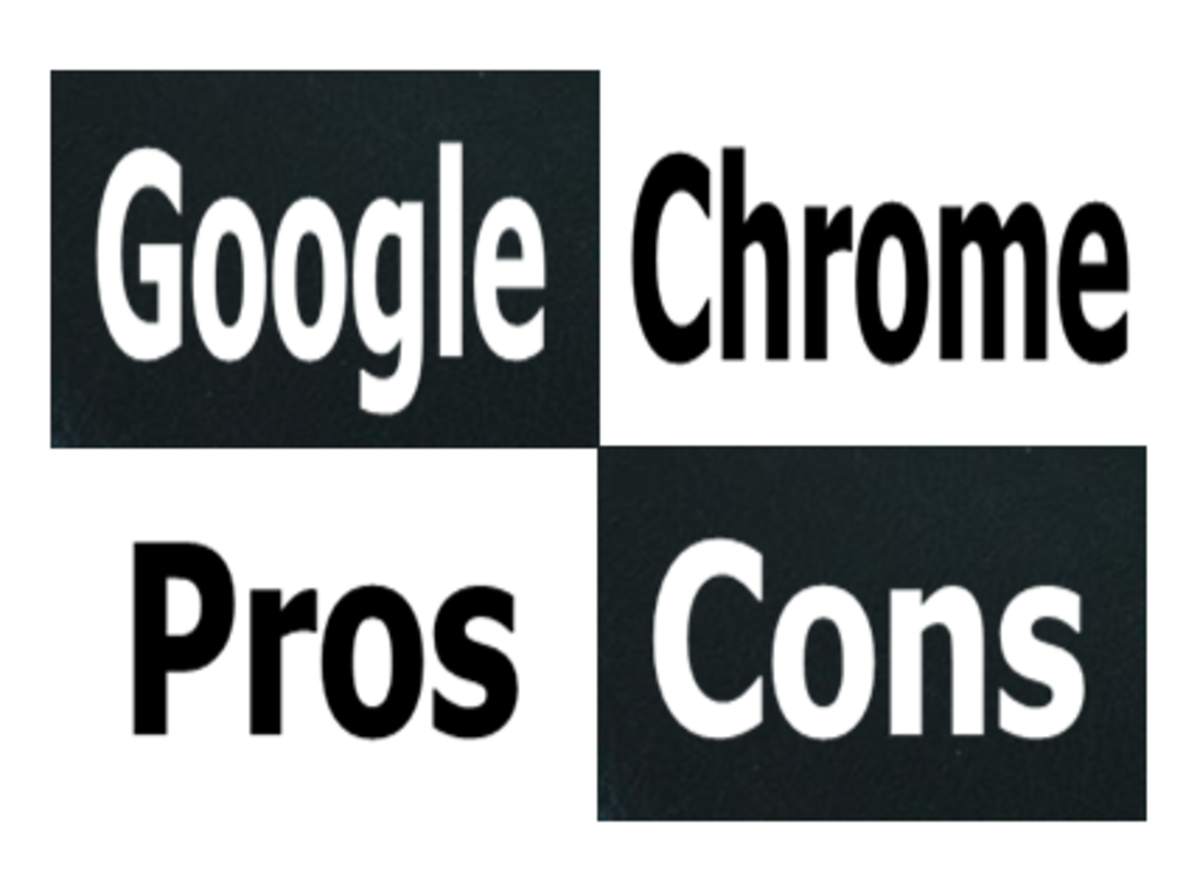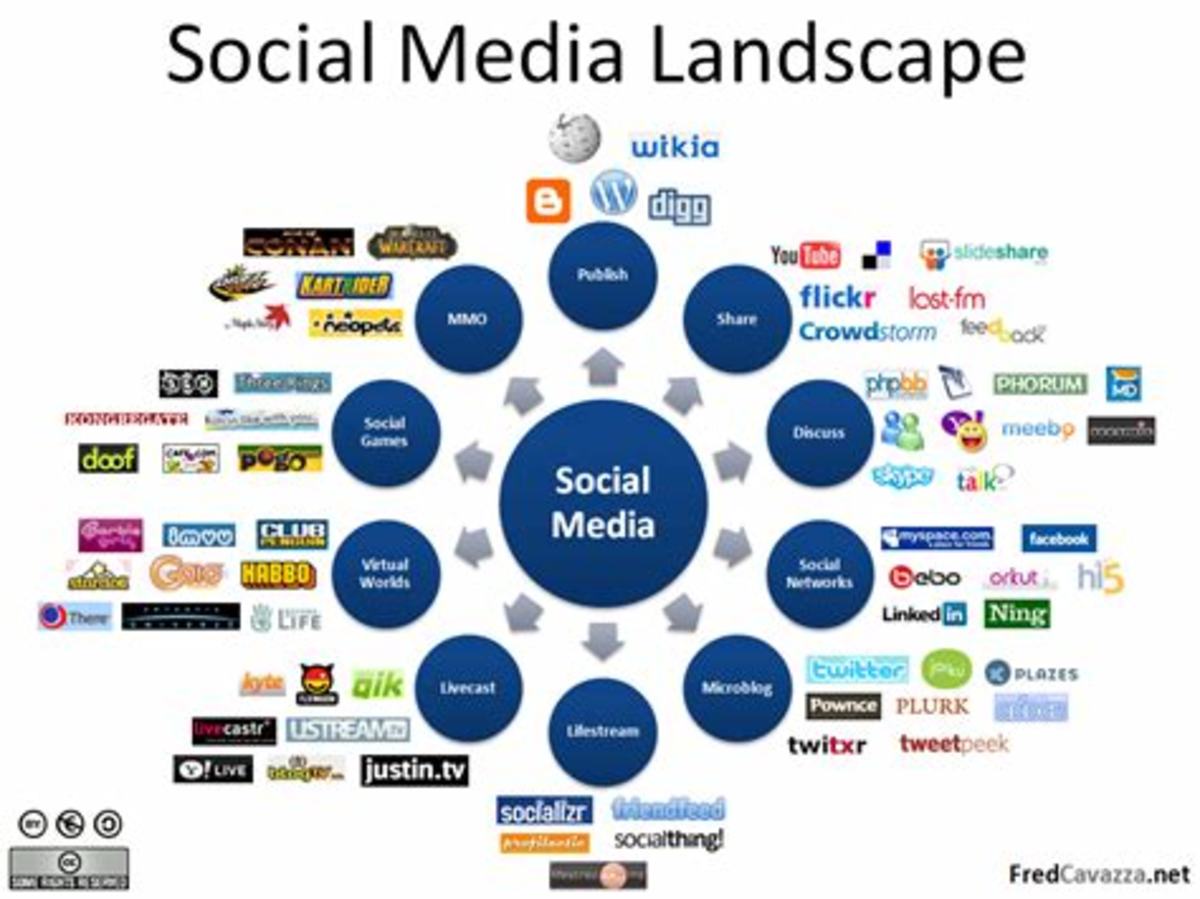Should You Use AdBlock?

With the rise of the internet came the rise of internet ads. And with the rise of internet ads has come the rise of ad blocking software. The most popular of these being the "AdBlock" extension.
Now, I'm not a fan of ads. But I understand why they're there, and why they have to stay. AdBlock is very handy, make no mistake, but it is also dangerous. It has the potential to negatively impact on everybody's internet browsing experience, even those who don't use it.
Please Note:
It is worth pointing out that in this hub I will talk mainly about AdBlock. However, this article applies more generally to all advert-blocking applications and extensions.
What Is AdBlock?
AdBlock is an extension that works with most modern web browsers, including Google Chrome, Mozilla Firefox, and Apple Safari. It does pretty much what it says on the tin - it blocks almost every ad on the page, from banner ads to popup windows. And what's more, this extension is free (though you can donate to the creator).
This all sounds great. But, there's a reason AdBlock isn't on my list of the best apps and extensions for Google Chrome.
The Problems of AdBlock
I love the internet. I really do. Sure, it's got its flaws, but it's still an incredible creation. Almost any information or funny cat video is at my fingertips, and it's almost all available for free.
And there lies the problem thrown up by AdBlock.
Everything needs money, and websites are no exception. Between paying for web hosting, maintenance, and even purchasing a domain in the first place, every website needs money to keep it running. Why do you think Wikipedia asks for donations? And why do you think most other websites run those things we hate so much - adverts.

People Should Be Paid for Their Work
People work hard on their websites, often expending large amounts of time, energy, and money to produce their content. For many websites, ads are the only way owners can get a return on their investment. Blocking ads mean a reduction in site revenue, meaning less money for the people who make them. This in turn means the site may be shut down, so you lose access to the content you enjoy. Not to mention the fact that the site owner loses their income - and for some people, their web content may be their only source of income.
For me, this adds up to a no-brainer - I want the content, and I want to support the content creator, so I'm happy enough to see adverts.

Paid Memberships
Some of my favourite sites on the internet operate on a model where their content is free, but premium users or sponsors get extra perks, for example: early access to content, or fewer/no ads.
If sites like these start seeing a reduction in ad revenue, they may decide to change to a business model under which all users have to pay for the content. That's fine for some people, but personally I'd rather see some ads, buy merchandise, and sponsor projects, than have to pay for all content.
Ads Can Be Relevant
We all tend to think of ads as a nuisance, rather than something useful. But with the increasing use of cookies (for better or worse), most of us will see a marked increase in the relevancy of the ads we see. The internet knows what you want to see. These days, I find that many of the adverts I see online are for upcoming movies, games, or music that I am genuinely interested in; sometimes things that I wouldn't otherwise have known about.
By using programs like AdBlock, we are limiting the potential of the internet to deliver us content we want to see.

What To Do if You Really Hate Those Popups?
Personally, I also hate popup ads or a website with too many annoying ads. But most modern web browsers already have a built-in (and rather sophisticated) popup blocker to get rid of annoying popup ads.
More importantly, the internet has come a long way in the last few years, and popup adverts are very much out of fashion.
In fact, if you get a popup ad on a web page, it's probably one to avoid: either it's not been updated since 2004, or its content is of questionable legality. Good websites do not use any popup ads. So, using a popup blocker will not do any harm.

Switching Off AdBlock
Typically, my recommendation is to use popup blockers only instead of ad blocking software. If however you are a big fan of AdBlock then all is not lost. If you're visiting a website you love, and you know it makes its money from ad revenue, then why not turn off AdBlock?
As the picture on the right demonstrates, you can stop AdBlock from running on a page, or all pages on that domain. So if you wanted to support, say, YouTube, or Hubpages, you could allow AdBlock to show you adverts on those domains. You get to avoid annoying ads, and you get to support your favourite websites. I think it's the best of both worlds, personally.
Ads are the price of free content
Ads can be annoying, and AdBlock is a great program. If it makes it easier for you to browse the web, go ahead and use it. But personally, I'm going to be careful with it. Some sites virtually beg you to use AdBlock - if they have just too many ads or popups, you can't help it. Still, I feel I have to acknowledge that I don't need to use it all the time.
Cast Your Vote
Do You Use AdBlock on Your Web Browser?
Thank You!
Thank you for taking the time to read this hub.. I hope you found it interesting. If you have any feedback, please feel free to vote in the poll, and you can also leave a comment below.








